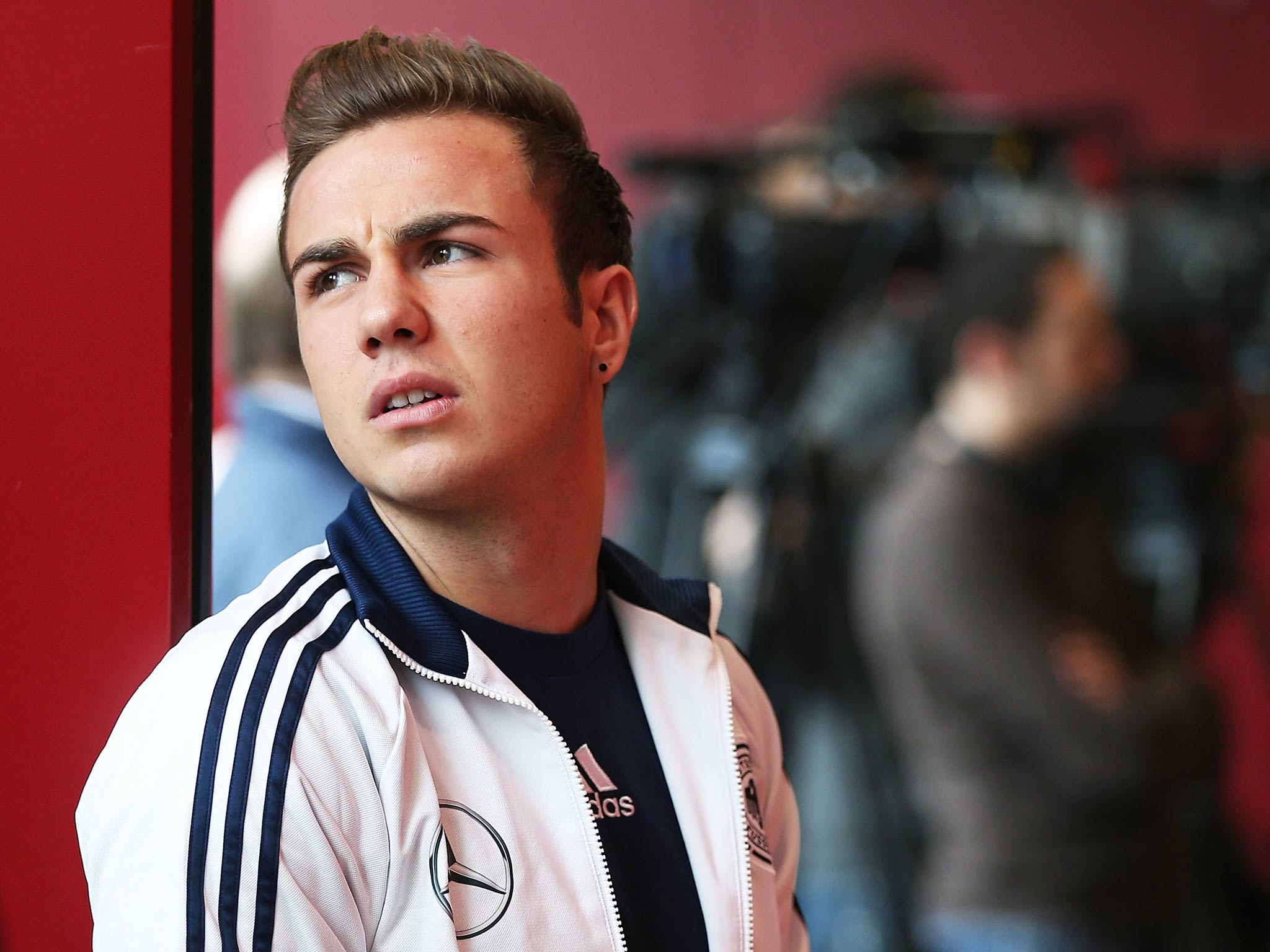The transfer of Mario Gotze is a sledgehammer blow to the Bundesliga
Bayern Munich appear to be flexing their muscles with the €37m deal for the Borussia Dortmund playmaker

Your support helps us to tell the story
From reproductive rights to climate change to Big Tech, The Independent is on the ground when the story is developing. Whether it's investigating the financials of Elon Musk's pro-Trump PAC or producing our latest documentary, 'The A Word', which shines a light on the American women fighting for reproductive rights, we know how important it is to parse out the facts from the messaging.
At such a critical moment in US history, we need reporters on the ground. Your donation allows us to keep sending journalists to speak to both sides of the story.
The Independent is trusted by Americans across the entire political spectrum. And unlike many other quality news outlets, we choose not to lock Americans out of our reporting and analysis with paywalls. We believe quality journalism should be available to everyone, paid for by those who can afford it.
Your support makes all the difference.Rarely, in recent years, has German football had it so good. With two teams in the semi-finals of the Champions League – and a reasonable chance of an all German affair in the final – you could forgive the Bundesliga for feeling a little smug after a decade in the shadow of the other major European leagues.
The success of Bayern and Dortmund, however, is not cause for universal celebration. Rather, it has sparked something of an identity crisis in a league which for so long has prided itself on a unique competitiveness, a unique unpredictability. In the not so bygone days when a European title for a German club was little more than a fantasy, the Bundesliga at least had the luxury of a moral high ground over the duopolies and monopolies of England, Spain and Italy.
Not so anymore, it seems, with a rather unexpected gap having grown between its two major powers and their sixteen fellow competitors. Even Uli Hoeness, whose blood flow only remains regular when Bayern are dominant, has expressed concern, wondering aloud whether the Bundesliga's reputation will suffer for its newfound "Spanish relations".
"Spanish relations", of course, means a duopoly. A duopoly which rather upsets the notion of the Bundesliga as Europe's most open league competition. BVB coach Juergen Klopp – the latest in a long line of Hoeness' verbal sparring partners – has gone one further. "Is there any country in which one team dominates?" he asked last week, before answering his own question: "Scotland. I'm afraid of Scottish relations."
Yesterday, Klopp's worst fear was realised, as news broke that one of Dortmund's most prized possessions had been gobbled up by their rivals for the fee of €37m. Mario Götze would be on his way to Munich at the end of the season.
It is a sledgehammer blow to BVB, and indeed to the rest of the Bundesliga. In recent years, Bayern have tended to hold back on transfers of this scale, particularly when buying from other German clubs. Only when in dire need of a particular player, as in the case of Manuel Neuer, have Bayern truly sought to bully their German rivals into a financial corner. With Götze, however, Bayern appear simply to be flexing their newly toned muscles. The 20-year-old is not there to fill a gap left by a departing player, but rather to enhance even further the quality of an already fearsome attacking midfield.
For Götze, no doubt, the chance to play under Pep Guardiola was not one to be turned down as defiantly as his good friend Marco Reus rejected Bayern last season. The German international who is billed – rather more accurately than the lost soul Marko Marin – as the "German Messi", will certainly thrive more in the Guardiola system a lot better than he ever would have done in a team under Jupp Heynckes. It is to Pep that all eyes are looking in search of a catalyst for this transfer.
For Dortmund, the announcement could not have come at a worse time. While this transfer had clearly been inevitable for some time, they would have wanted to keep it quiet until after their Champions League campaign had ended. As it is, Götze will face Real Madrid on Wednesday knowing that his home supporters could give him a harder time than the likes of Essien and Varane. If any internal squabble is going to upset the harmony at Dortmund, it is one like this.
Speaking of internal squabbles, this could hardly have gone any better for FC Bayern. Not only have they snapped up one of Europe's most accomplished young players for the coming season, but they have also wrenched the limelight away from their beleaguered president. Uli Hoeness has this week found himself at the centre of a storm over tax evasion, and the premature announcement of the Götze deal has doubled up, inadvertently or otherwise, as a happy distraction.
As for the Bundesliga, Götze's transfer is, in itself, not the harbinger of monopolised doom. One player will not solve all the teething problems Guardiola is likely to have next season, and if Dortmund's rise has shown us one thing, it is that any team can come out of nowhere in German football. But it does open the door for a new, more limitless transfer policy from the league's bully boys. If they are willing to spend so highly that even Dortmund's most righteous angel will sell his soul, then no club is safe. And Scottish relations are always just around the corner.
Join our commenting forum
Join thought-provoking conversations, follow other Independent readers and see their replies
Comments